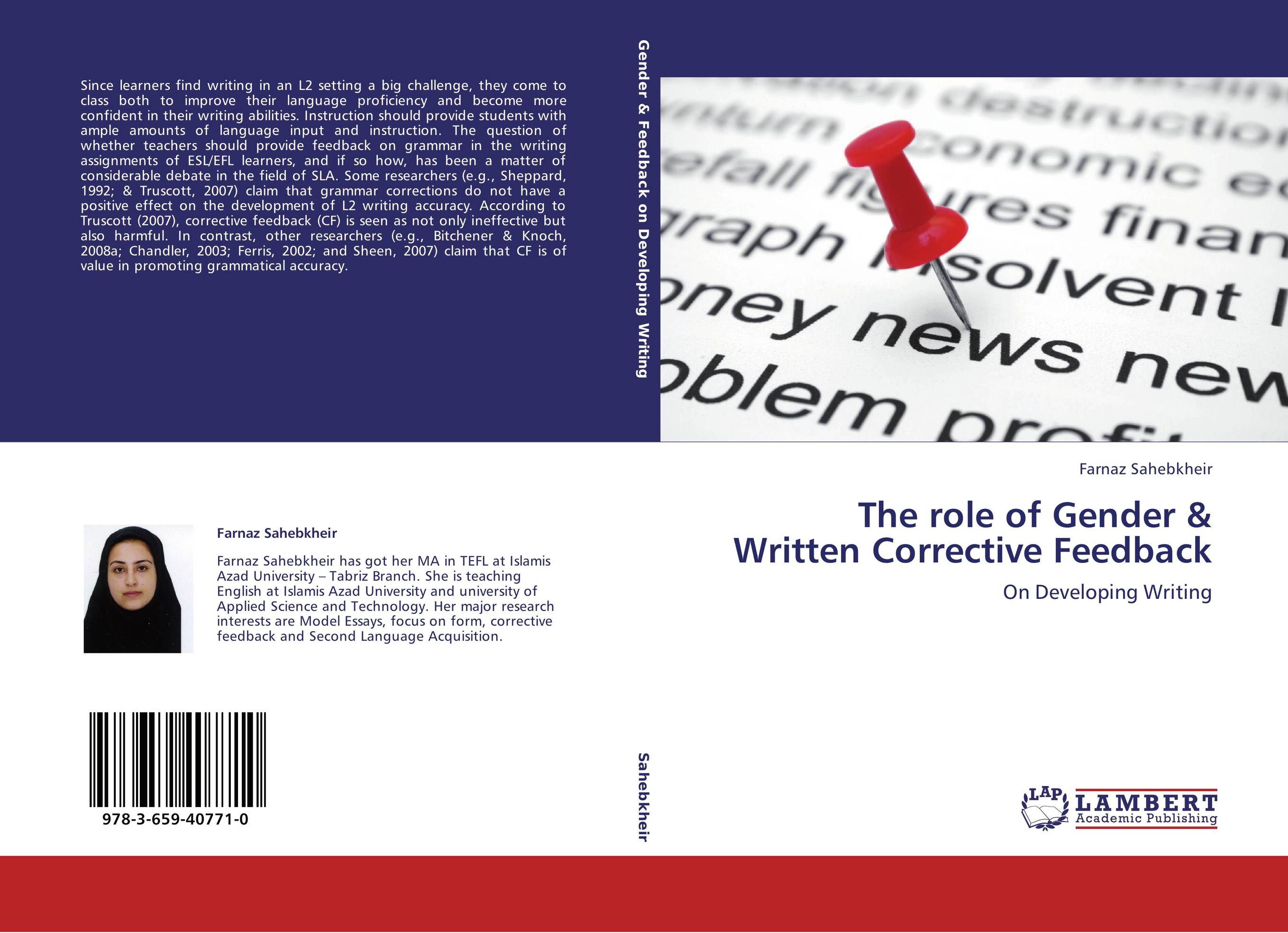| Поиск по каталогу |
|
(строгое соответствие)
|
- Профессиональная
- Научно-популярная
- Художественная
- Публицистика
- Детская
- Искусство
- Хобби, семья, дом
- Спорт
- Путеводители
- Блокноты, тетради, открытки
The role of Gender & Written Corrective Feedback. On Developing Writing

В наличии
| Местонахождение: Алматы | Состояние экземпляра: новый |

Бумажная
версия
версия
Автор: Farnaz Sahebkheir
ISBN: 9783659407710
Год издания: 2013
Формат книги: 60×90/16 (145×215 мм)
Количество страниц: 128
Издательство: LAP LAMBERT Academic Publishing
Цена: 36272 тг
Положить в корзину
| Способы доставки в город Алматы * комплектация (срок до отгрузки) не более 2 рабочих дней |
| Самовывоз из города Алматы (пункты самовывоза партнёра CDEK) |
| Курьерская доставка CDEK из города Москва |
| Доставка Почтой России из города Москва |
Аннотация: Since learners find writing in an L2 setting a big challenge, they come to class both to improve their language proficiency and become more confident in their writing abilities. Instruction should provide students with ample amounts of language input and instruction. The question of whether teachers should provide feedback on grammar in the writing assignments of ESL/EFL learners, and if so how, has been a matter of considerable debate in the field of SLA. Some researchers (e.g., Sheppard, 1992; & Truscott, 2007) claim that grammar corrections do not have a positive effect on the development of L2 writing accuracy. According to Truscott (2007), corrective feedback (CF) is seen as not only ineffective but also harmful. In contrast, other researchers (e.g., Bitchener & Knoch, 2008a; Chandler, 2003; Ferris, 2002; and Sheen, 2007) claim that CF is of value in promoting grammatical accuracy.
Ключевые слова: writing, Gender, focus on form, written corrective feedback, grammatical accuracy



